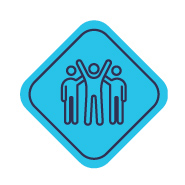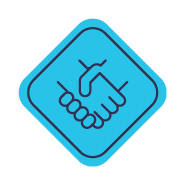
How Exemplary Leadership Skills Create High-Performing Teams
Nov 14, 2025
What makes a team truly high performing? Is it access to cutting-edge technology, streamlined processes, or a well-designed org chart? While these elements matter, they’re not the engine. They’re the fuel. The engine is human.
In our latest research, Wiley Workplace Intelligence surveyed over 1,500 professionals to understand what separates high-performing teams from the rest. The results are clear: leadership, emotional intelligence, and psychological safety are the most critical ingredients. Technology may enable performance—but people drive it.
We wanted to explore the human-centered dynamics that define high-performing teams, and the results challenge common assumptions about remote work and stress and offer a reality check for organizations that may be overinvesting in systems while underinvesting in people.
The High-Performance Reality Check
At first glance, the data paints a confident picture:
-
81% of respondents say they’re on a high-performing team.
-
93% consider themselves high performers.
But beneath this optimism lies a deeper question: What does “high performing” really mean? Is it about hitting KPIs, maintaining productivity, or simply feeling competent? While self-perception is important, it doesn’t always align with the conditions that foster sustainable excellence.

81% report being on a high-performing team.
That’s where the data gets interesting. When we isolate the factors that correlate most strongly with high performance, a clear pattern emerges: teams that prioritize psychological safety, emotional intelligence, and strong leadership consistently outperform those that don’t. These aren’t just soft skills, they’re strategic assets.
Psychological Safety: The Game-Changer
If there’s one factor that stands out above the rest, it’s psychological safety. It’s the difference between a team that innovates and one that stagnates. Between a workplace that retains talent and one that repels it.
Our research found that:
-
87% of employees who strongly agree they feel safe to speak up are on high-performing teams.
-
Only 52.8% of those who strongly disagree report the same.
That’s a 36-point performance gap – a staggering difference driven by a single variable: the ability to speak freely without fear of judgment or retaliation.

87% who feel safe speaking up report being on a high-performing team.
Psychological safety isn’t just about comfort. It’s about courage. It allows team members to challenge ideas, admit mistakes, and offer feedback—all of which are essential for growth. And it starts with leadership. Leaders who model vulnerability, invite dissent, and respond with empathy create the conditions for safety to flourish.
The Human Factors That Matter Most
We asked employees what they believe contributes to high team performance. The top responses weren’t about tools or systems—they were about people.
Top 3 Elements of High-Performing Teams
-

Leadership – 90%
-

Emotional Intelligence – 83%
-

Psychological Safety– 81%
Like most skills, these top three elements of high-performing teams can be nurtured over time through development and training. For example, exemplary leaders who follow The Five Practices® create the foundation for these elements to thrive when they Model the Way, Inspire a Shared Vision, Challenge the Process, Enable Others to Act, and Encourage the Heart.
Organizations that focus solely on tools, processes, or structures while neglecting these human dynamics are missing the most critical ingredients for high performance.
The Remote Work Paradox
Remote work continues to be a lightning rod for debate. Some leaders worry that it erodes team cohesion, while others see it as a productivity booster. But what does the data say?
-
Remote workers: 85.4% on high-performing teams
-
Hybrid workers: 82.8%
-
Office-based workers: 79.1%
Despite only 23.1% of respondents perceiving a positive impact from remote work, remote teams consistently outperform their office-based counterparts. This suggests that performance isn’t about proximity, it’s about intentional connection.
Remote teams may benefit from clearer communication norms, greater autonomy, and fewer distractions. But they also require more deliberate leadership. Without hallway conversations or spontaneous check-ins, leaders must be proactive in fostering trust, inclusion, and psychological safety.
The takeaway? Remote work doesn’t weaken teams—it reveals their strengths and gaps more clearly.
Stress and Sustainability
High performance often conjures images of hustle, pressure, and burnout. But our data tells a more nuanced story.
High performers report a moderate stress level of 5.42 out of 10. That’s not low—but it’s not crisis mode either. It suggests that high performance is sustainable when the right conditions are in place.
Interestingly, self-identified high performers don’t show dramatically different stress patterns from their peers. This implies that stress alone isn’t a reliable indicator of performance. What matters more is how stress is managed—and whether the team environment supports resilience.
Emotional intelligence and psychological safety likely play a buffering role here. When people feel supported, heard, and valued, they’re better equipped to handle challenges without tipping into burnout.
Leading with Humanity
The most effective teams aren’t built on software—they’re built on trust. They thrive when leaders prioritize emotional intelligence, foster psychological safety, and recognize the value of diverse perspectives.
As organizations navigate complexity and change, the challenge is clear: don’t just invest in tools—invest in people. Because when humans feel safe, seen, and supported, performance follows.
Leadership isn’t just a role, it’s a responsibility. And in the age of AI, it’s more human than ever.
Wiley’s suite of professional solutions provides a structure and common language to help empower entire organizations with the skills needed to get to the next level. From unlocking the power of leadership at every level with The Leadership Challenge®, building better teams with The Five Behaviors®, improving understanding to create engaged, collaborative, and adaptive cultures with Everything DiSC® on Catalyst™, or helping you make confident hiring decisions with PXT Select®, Wiley has innovative solutions that help make the workplace a better place.
Wiley Workplace Intelligence conducts in-depth research on key workplace issues by gathering insights from individual contributors, managers, and leaders. Wiley Workplace Intelligence then analyzes these findings to provide actionable solutions that are shared in our blog.

